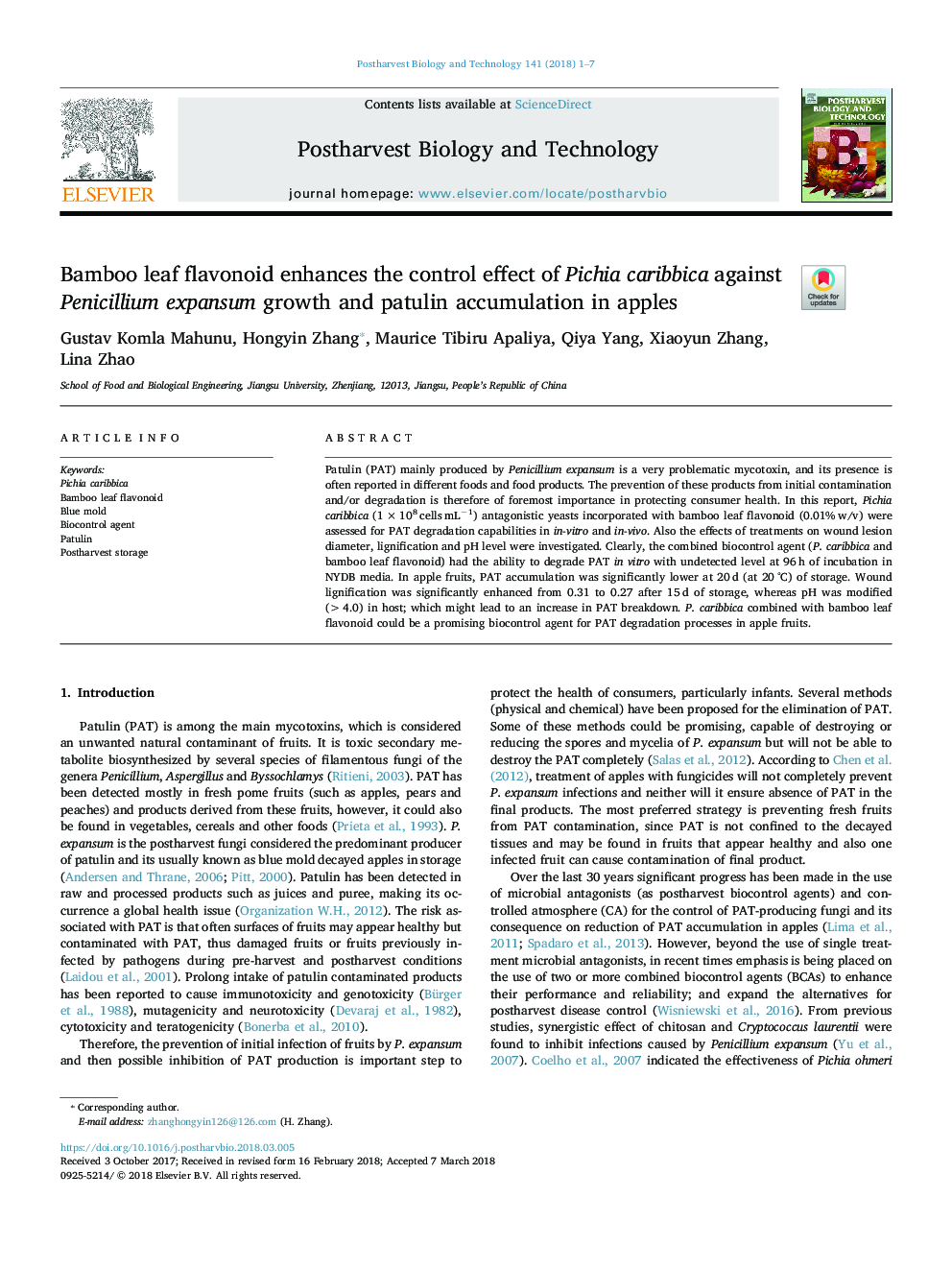| Article ID | Journal | Published Year | Pages | File Type |
|---|---|---|---|---|
| 8881899 | Postharvest Biology and Technology | 2018 | 7 Pages |
Abstract
Patulin (PAT) mainly produced by Penicillium expansum is a very problematic mycotoxin, and its presence is often reported in different foods and food products. The prevention of these products from initial contamination and/or degradation is therefore of foremost importance in protecting consumer health. In this report, Pichia caribbica (1â¯Ãâ¯108â¯cellsâ¯mLâ1) antagonistic yeasts incorporated with bamboo leaf flavonoid (0.01%â¯w/v) were assessed for PAT degradation capabilities in in-vitro and in-vivo. Also the effects of treatments on wound lesion diameter, lignification and pH level were investigated. Clearly, the combined biocontrol agent (P. caribbica and bamboo leaf flavonoid) had the ability to degrade PAT in vitro with undetected level at 96â¯h of incubation in NYDB media. In apple fruits, PAT accumulation was significantly lower at 20â¯d (at 20â¯Â°C) of storage. Wound lignification was significantly enhanced from 0.31 to 0.27 after 15â¯d of storage, whereas pH was modified (>4.0) in host; which might lead to an increase in PAT breakdown. P. caribbica combined with bamboo leaf flavonoid could be a promising biocontrol agent for PAT degradation processes in apple fruits.
Related Topics
Life Sciences
Agricultural and Biological Sciences
Agronomy and Crop Science
Authors
Gustav Komla Mahunu, Hongyin Zhang, Maurice Tibiru Apaliya, Qiya Yang, Xiaoyun Zhang, Lina Zhao,
